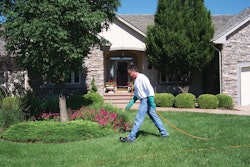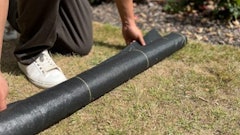In the aftermath of the recent pesticide ban in Montgomery County, MD, we've been talking to lawn care contractors from around the country to gauge their attitudes. I've been hearing the following statement a lot: "We'd like to move away from pesticides, but need viable alternatives. Organic herbicides do not work."
The purpose of this column is not to debate whether or not organic herbicides work. You can read some opposing viewpoints in our feature story, "The Organic Opportunity". Here, though, I want to look at the bigger picture: the lawn care business model in general.
The intense, often emotional debate over pesticide use shouldn't be about whether or not one study says lawn pesticides cause cancer, or another study says they don't. It shouldn't be about demonizing the opposing side. The discussion, at least within our industry, should be about what makes the most sense for the consumer, the contractor and the environment.
It's hard to argue that using pesticides as sparingly as possible makes a ton of sense. More of our readers are telling us that they're making concerted efforts to do just that. They are reducing their pesticide needs by religiously following integrated pest management best practices. They are using organic-based products whenever possible. Some are offering additional services such as compost topdressing and other soil amendment applications. They are focusing on products and procedures designed to get to the real root of a healthy, relatively weed-free lawn.
Notice I used the word relatively. That's the other part to all of this. What is considered to work or not work is relative to a customer's expectation. Understand that the current business model for lawn care was largely built on the "keeping up with the Joneses" mentality. If you don't maintain the perfect front lawn, you are a social deviant. Hence the peer pressure-driven, "feed it, spray it, kill it" model.
More contractors are now leaning toward what I call a "nurture it" model. Many contractors still reserve the use of pesticides in smaller amounts on an absolutely as-needed basis. But their focus is soil health. Their focus is to create the conditions by which weeds, insects and disease are less likely. That's a different kind of message for consumers. It's a message that's already resonating with many, and has the potential to resonate with so many more. More contractors just need to embrace it and start sharing it.
Perhaps over the next 10 years or so, the new social deviants of suburbia will be the ones who are still having pesticides and fertilizers needlessly piled on their lawns. Just in case that proves to be true, you might want to start boning up on a soil health-based approach to lawn care.




















